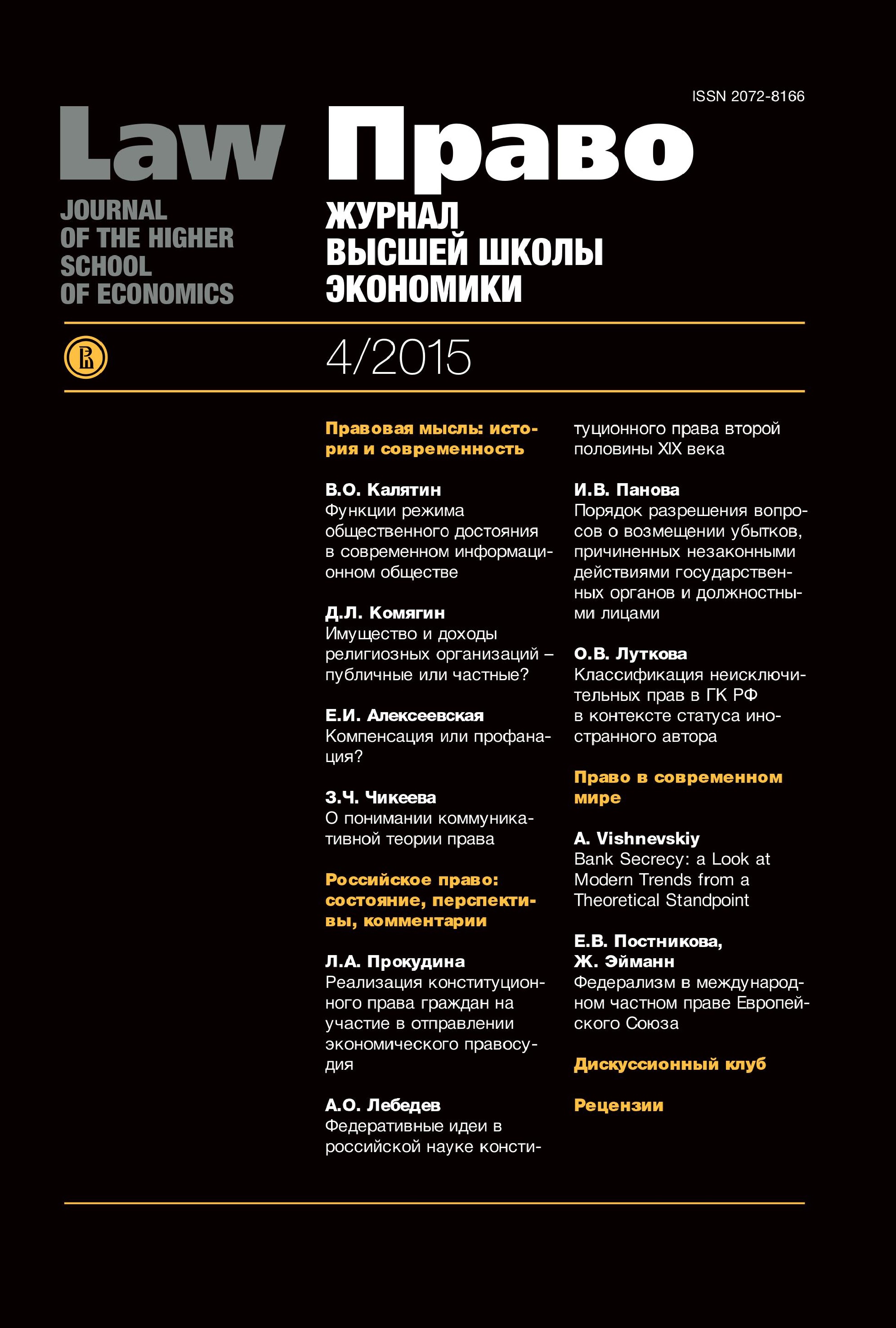Порядок разрешения налоговых споров в Южно-Африканской Республике
Аннотация
Налоговая система Южно-Африканской Республики в последнее время переживает значительные изменения. Основой реформирования порядка административного и судебного обжалования решений Государственной службы доходов ЮАР стало принятие Закона о налоговом администрировании в 2012 г. В статье исследуется правовое регулирование способов разрешения налоговых споров в Южно-Африканской Республике. Первой инстанцией разрешения конфликтов между налогоплательщиками и налоговыми органами является Налоговый совет — административный орган в структуре Государственной службы доходов. В Налоговый совет входят председательствующий, назначаемый из числа адвокатов, сертифицированный бухгалтер и представитель предпринимательского сообщества. В случае неудовлетворенности решением Совета участники налоговых правоотношений вправе обратиться в налоговый суд. Система налогового судопроизводства была учреждена в соответствии с Конституцией ЮАР 1996 г. Налоговые суды располагаются в четырех городах, что, по мнению специалистов, влечет для налогоплательщиков дополнительные расходы, усложняет доступ к специализированному правосудию, следовательно, ухудшает положение налогоплательщиков. Решения налоговых судов могут быть обжалованы в отделения Верховного суда ЮАР в провинциях. Данные суды могут подтвердить оценку обязательства налогоплательщика, отменить решение налогового суда и принять новое решение, либо направить дело в налоговый суд с требованием рассмотреть его повторно в новом составе судей. Наконец, налогоплательщики имеют право обратиться в Высший апелляционный суд, решение которого имеют силу прецедента и, как правило, налогоплательщиками не обжалуются. Тем не менее Конституционный суд ЮАР вправе пересматривать решения Высшего апелляционного суда. Однако в настоящее время вопреки требованиям законодательства процедура рассмотрения налоговых споров Конституционным судом ЮАР отсутствует. Особое внимание автор уделят альтернативным способам разрешения налоговых споров. Успешно зарекомендовали себя медиация и арбитраж. Однако наибольший интерес представляет институт Налогового омбудсмена, учрежденный в 2012 г. Налоговый омбудсмен должен рассматривать жалобы с помощью справедливых и экономически эффективных мер. Данный метод решения споров разработан как простое и доступное средство для налогоплательщиков, которые имеют правомерные жалобы, относящиеся к административным делам, плохому качеству обслуживания или неспособности Государственной службы доходов соблюдать права налогоплательщиков.


















